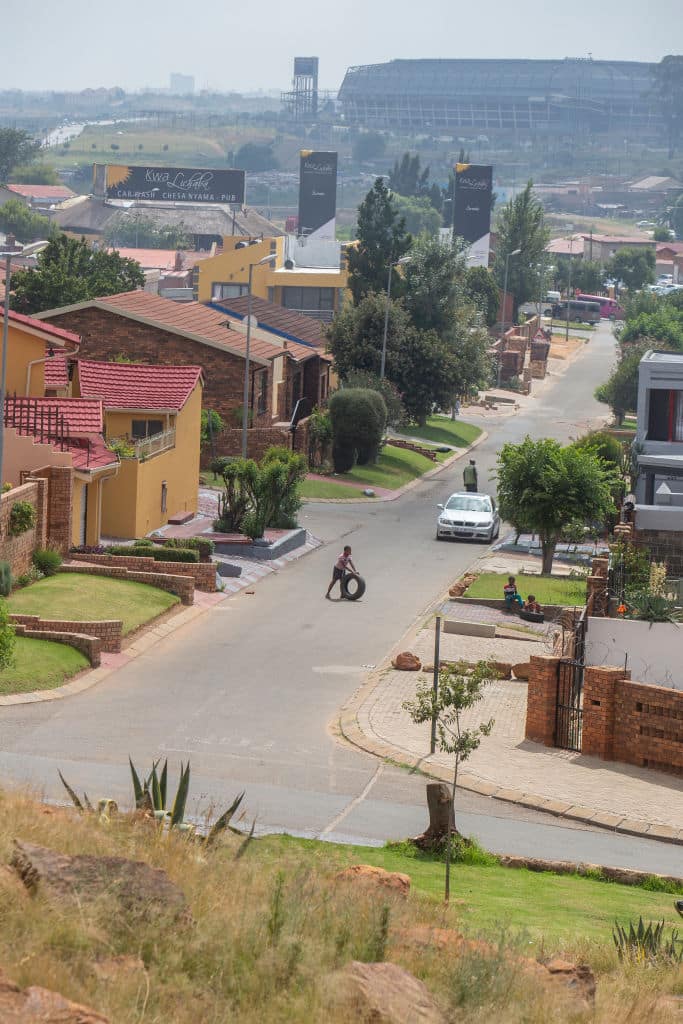Nolwazi* lives in a township in South Africa. She works in the informal sector and was recently turned down for a loan of $80,000.
Having heard her story, I can’t understand why she was denied the loan. And I think this is indicative of why African entrepreneurs have more advantages than ever.
If you think you’d have taken the same decision as the bank, I need to add a few more details.
Nolwazi might live in one of the poorer areas of South Africa, but she is certainly not poor. She chooses to live there as she can run a thriving backroom rental business.
She started out renting one room from her formal dwelling but now lives in a property where she can rent out 11 units at a time. She also owns a second property which she rents out to students. Her average backroom income is now approximately $8,000 per month, which is probably substantially more than the bank manager who declined her loan application.
Loading...
She wanted the loan to build student accommodation on land she already owned next to a major university.
After six weeks of deliberation, the bank turned down her application.
The story doesn’t finish here because Nolwazi decided to run an experiment.
She went to a different branch of the same bank and, applied for a car loan of $80,000 for a new Mercedes. It was approved in 20 minutes.
Why would a bank prefer to lend $80,000 for something that depreciates when they could have taken the safer bet of funding a valid capital-based business enterprise?
It was GG Alcock, best-selling author of Kasinomics, who got me thinking about the answer to this question when he drew my attention to this and other stories from township entrepreneurs.
The backroom rental industry, which Nolwazi forms part of, is estimated to generate over R50 billion ($2.6 billion) per annum, as owners rent out their rooms for accommodation, storage, corner shops (spazas), garages, takeaways, workshops, hair salons, beauty parlors and other services.
Nolwazi’s story isn’t, therefore, unique. It’s an allegory that showcases how vibrant the informal sector is and why millions of Africans are choosing to stay in townships, either for cheaper rents or to run their own entrepreneurial ventures.
And it’s a story that supports my view that local African entrepreneurs have never had so much opportunity, for two key reasons.
The first is that big businesses will always find it challenging to identify and exploit the informal sector because of a mix of prejudice and ignorance.
I’m speaking from experience here, as in all of my years working in financial services, I can’t remember ever being asked to investigate opportunities in the informal sector. Instead, established businesses are predisposed to focus on improving what they have, whereas entrepreneurs are the only people looking to solve existing problems in new markets.
The second reason entrepreneurs will win in these markets is because of the democratization of virtually everything you now need to run a successful business.
This is a relatively new phenomenon which is being driven by the confluence of improved technologies, more financing options and the ability to access skilled labor from anywhere on the planet.
And if you need a guiding hand that helps you navigate every step from idea to IPO, hundreds of African-based incubators and accelerators are now designed to help you do exactly that.
What was once the preserve of the wealthiest companies in the wealthiest countries is now accessible in virtually every major African city. Simply put, if you identify an opportunity and have enough grit and determination to give it a go, it’s never been easier to convert your dream into reality.
Oh, and if you were wondering what happened to Nolwazi, I’m happy to report she eventually did receive her loan.
And no, it was not provided by one of the large incumbent banks.The opportunity for African entrepreneurs has never been so great.
Loading...
